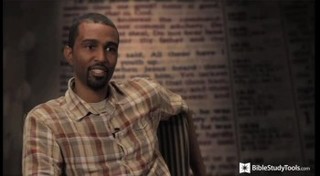
- Recent Translations
- All Translations
Kehillah in Corinth I 1:22
Share
Settings
Kehillah in Corinth I 1:22 Meaning and Commentary
For the Jews require a sign
The Jews had always been used to miracles, in confirmation of the mission of the prophets sent unto them, and therefore insisted on a sign proving Jesus to be the true Messiah; except signs and wonders were wrought, they would not believe; and though miracles were wrought in great numbers, and such as never man did, they remained incredulous, and persisted in demanding a sign from heaven, and in their own way; and it was told them that no other sign should be given them, but that of the prophet Jonah, by which was signified the resurrection of Christ from the dead; this was given them, and yet they believed not, but went on to require a sign still; nothing but miracles would do with them, and they must be such as they themselves pleased: the Alexandrian copy, and some others, and the Vulgate Latin version, read "signs", in the plural number:
and the Greeks seek after wisdom;
the wisdom of the world, natural wisdom, philosophy, the reason of things, the flowers of rhetoric, the ornaments of speech, the beauties of oratory, the justness of style and diction; as for doctrines they regarded none, but such as they could comprehend with, and account for by their carnal reason, everything else they despised and exploded. Hence we often read F12 of (tynwwy tmkx) , "the Grecian wisdom", or wisdom of the Greeks; which, the Jews say F13, lay in metaphors and dark sayings, which were not understood but by them that were used to it; the study of it was forbidden by them, though some of their Rabbins were conversant with it F14.
F12 T. Bab Menachot, fol 99. 2. Bava Kama, fol. 82. 2.
F13 Maimon & Bartenora in Misn. Sota, c. 9. sect. 14.
F14 Shalshelet Hakabala, fol. 25. 1. Ganz. Tzemach David, par. 3. fol. 31. 2.
Kehillah in Corinth I 1:22 In-Context
Videos for Kehillah in Corinth I 1:22
